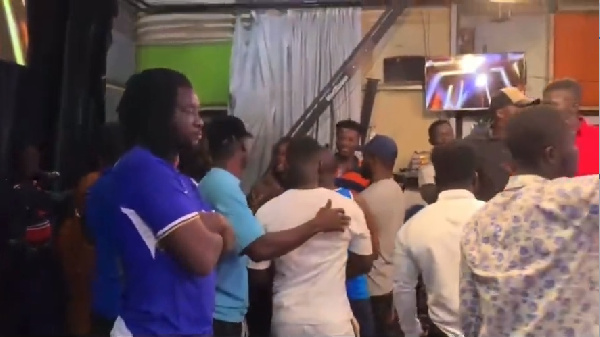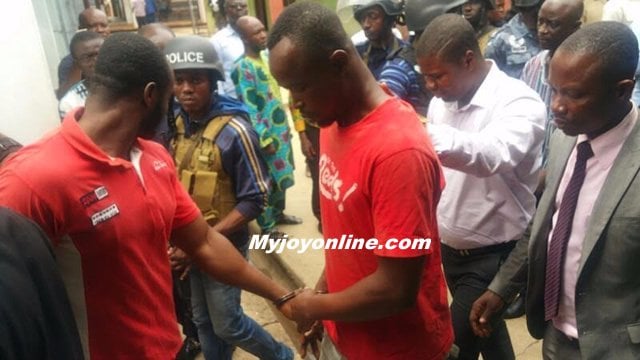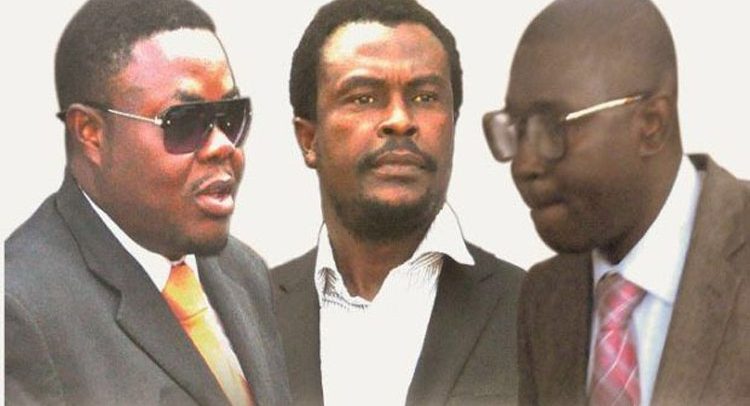
Democracy is expected to offer a peaceful means of conflict resolution through elections and free expression.
However, in Ghana, this vision is often overshadowed by persistent political violence that has left many citizens disheartened and questioning the integrity of the judicial system.
In recent years, a series of high-profile politically motivated attacks have ended not with justice served but with outcomes widely viewed as unacceptable, fuelling public frustration and raising serious concerns about accountability by think tanks, Civil Society Organisations (CSOs) and a section of the public.
These attacks intersect with partisan rivalries, vigilantism, and media attacks, particularly around elections, in the quest to win at all costs.
The public’s disillusionment stems from a perceived lack of serious consequences for perpetrators usually affiliated with the party in power, which critics argue emboldens political vigilantism.
Where prosecutions and judgements have been secured, some conclusions have been widely viewed as unacceptable—such as acquittals, lenient fines, dropped charges, or prolonged retrials.
These cases highlight criticisms of judicial leniency, political interference, or insufficient evidence, leading to a growing crisis of public trust.
Below are some incidents that highlight the concerns:
1. The Ablekuma North Electoral Violence Case (2025)

A more recent example is the case involving eight men convicted for their role in violent disturbances during the Ablekuma North parliamentary re-run in just 19 polling stations. The men were convicted of assaulting political figures, including former Minister of State Hawa Mavis Koomson.
The convicted men were each fined 500 penalty units (GH¢6,000) or faced a 24-month prison sentence in default of payment. This sentence was met with strong criticism, including from Franklin Cudjoe, President of the policy think tank IMANI Africa, who stated that the punishment was not “harsh enough to deter future acts of electoral violence”.
This sentiment reflected a broader public concern that such lenient sentences fail to serve as a sufficient deterrent.
2. UTV Studio Invasion (2023)

During a live broadcast of the talk show United Showbiz on United Television (UTV), about 16 thugs affiliated with the ruling New Patriotic Party (NPP) stormed the studio.
They demanded the removal of a guest critical of the party, causing disruption and fear among staff. This was seen as a politically motivated attack on media freedom.
The perpetrators were charged with conspiracy to commit a crime, rioting, and assault. In October 2023, an Achimota Magistrate Court convicted them after they pleaded guilty.
Each was fined only GH¢2,400 (about $200 USD at the time), which media watchdogs like the Media Foundation for West Africa (MFWA) deemed too lenient, arguing it set a poor precedent for deterring future attacks on journalists.
The fine was lower than in similar prior cases, leading to widespread disappointment over the lack of harsher penalties like imprisonment.
3. Delta Force Courtroom Attack (2017)

Delta Force, an NPP-affiliated vigilante group, was involved in multiple incidents.
In one, they assaulted the Ashanti Regional Security Coordinator appointed by the NPP government in 2017.
In another high-profile event, they stormed a Kumasi court to free 13 members on trial for the assault, overpowering police.
Eight members were charged with conspiracy, rioting, and assaulting a public officer.
However, the Attorney General entered a nolle prosequi (dropping charges) in 2018, citing insufficient evidence. Some related cases resulted in minimal fines.
The dropped charges drew accusations of political protectionism, as Delta Force was linked to the ruling NPP.
Public and opposition figures expressed disappointment over impunity, arguing it encouraged vigilantism.
No significant accountability followed, contributing to broader concerns about electoral and political violence in Ghana
4. Montie 3 (2016)

The Montie 3 case involved Godwin Ako Gunn, Alistair Nelson, and Salifu Maase, who made threatening statements against the Chief Justice and other Supreme Court justices during a radio programme on Montie FM in 2016.
The Supreme Court found the three affiliates of the NDC guilty of contempt and sentenced them to four months in prison in July 2016.
They were released early by a presidential pardon from President John Dramani Mahama in August 2016, which ignited a public debate on the president’s power to pardon for contempt and the principle of judicial independence.
The pardon sparked a significant public and legal debate about the legality and legitimacy of the President’s power to pardon in cases of contempt of court, particularly in the context of the 1992 Constitution and the principle of the rule of law.
A major issue was whether the pardon undermined judicial independence by interfering with the court’s authority and the administration of justice.
The decision was challenged at the Supreme Court by Ghanaian citizen Elikplim L. Agbemava, who was seeking an interlocutory injunction to restrain the President from exercising his prerogative of mercy under Article 72 of the constitution to free the Montie three contemnors.
In a majority judgement, five justices of the court, Justices Alfred Benin, Sophia Adinyira, Yaw Appau, Gabriel Pawmang and Baffoe-Bonnie, held that the president’s power to remit a conviction covers that of contempt of court.
They said the decision of President Mahama to grant pardon to the three cannot be questioned as it followed due process.
Two other judges on the panel, Justice Enin Yeboah and Jones Dotse, held a contrary view.
A Crisis of Public Trust
These recurring incidents have contributed to a significant decline in public confidence in the judiciary.
Data from the Afrobarometer survey shows that 62% of Ghanaians have little to no trust in the courts.
This level of distrust, more than double the figure from 2005, is primarily attributed to the judiciary’s handling of political cases, which are often perceived as favouring the ruling party.
The pattern of acquittals and lenient sentences in cases of political violence creates a dangerous precedent. It undermines the rule of law, erodes faith in state institutions, and signals to political groups that they can act with impunity.
Until the justice system can consistently and decisively hold perpetrators of political violence accountable, Ghana’s democratic stability will remain under threat.